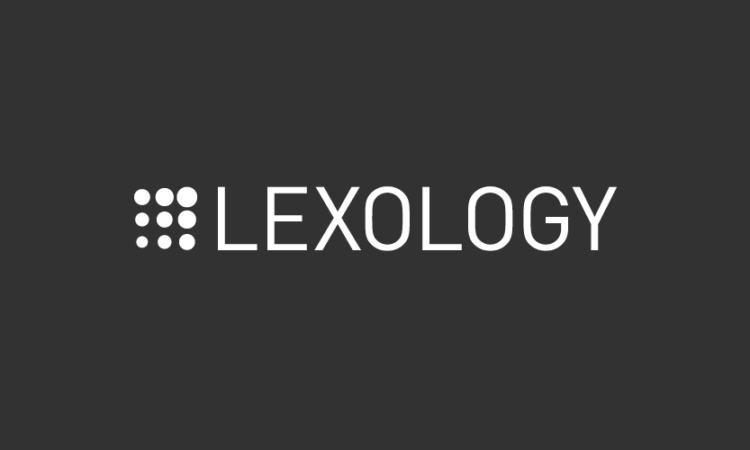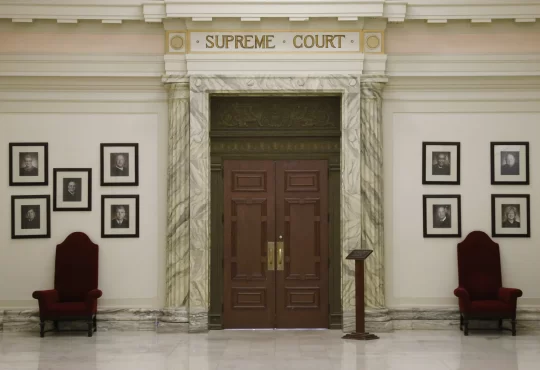
This article is an extract from GTDT Litigation Funding 2023. Click here for the full guide.
The United States is a federal system, with overlapping federal and state jurisdictions, including 96 federal judicial districts and 50 individual US states, each with its own court system. As such, attorneys and parties contemplating commercial litigation finance transactions in the United States must pay particular attention to the many potential jurisdictions that may be implicated by a single particular transaction – including the governing law of the litigation finance agreement, the location of the parties, the venue of the particular litigation, and the jurisdiction in which a judgment may eventually be enforced. Further, because litigation finance-related jurisprudence is still in development, those considering a litigation funding transaction in one jurisdiction would be well advised to consider the applicability of precedents from other jurisdictions.
This brief addendum is not intended to be a comprehensive guide to litigation finance in the United States outside of New York. Rather, it endeavours to highlight some of the notable rules and precedents in a few important jurisdictions beyond New York, which have developed recently as litigation finance has become more common in the United States. The addendum is largely focused on permissibility of commercial litigation finance generally, and any rules regarding disclosure of funding and the scope of protection afforded communication with funders. Consumer litigation finance transactions may implicate other regulations that are beyond the scope of this addendum.
Covid-19 pandemic
The covid-19 pandemic has caused uncertainty in the litigation space, beginning in 2020 and continuing through 2022. Parties to litigation are unsure whether their current capital and revenue streams are sufficient to support the expense of drawn-out legal battles and court dockets remain congested as earlier delays continue to work their way through the legal system. Indeed, in 2020 and 2021, most US jurisdictions moved to motion hearings by video or teleconference, and trials were postponed by several months. In some cases, courts have yet to hold these adjourned trials, and, as a result, cases filed today will not go to trial for many years. In this time of uncertainty and capital conservation, many prospective plaintiffs are looking to hedge their risk through litigation funding.
US federal
Because litigation funding-related issues typically involve matters of state law (eg, state bar rules, contract law, status of champerty provisions, etc) or procedural matters governed by local practice, some of which are discussed below in the state summaries, there is little purely federal law on funding. However, there have been recent proposals to legislate funding at the federal level. In 2021, the United States Congress reintroduced the Litigation Funding Transparency Act (first introduced in 2019), which, if enacted, would require disclosure of funding (and a copy of the funding agreement) in any federal class action or federal multi-district litigation (the proposed law was initially put forward without success in 2018). It was referred to the Subcommittee on Courts, Intellectual Property, and the Internet in October 2021, so it remains to be seen whether the law will eventually be amended or enacted. Additionally, certain states have previously considered similar laws to regulate litigation funding locally, including New York State (Assembly Bill 1270), Florida (House Bill 7041) (indefinitely postponed and withdrawn from consideration in March 2020) and Utah (House Bill 312) (Maintenance Funding Practices Act effective 12 May 2020).
There is no general affirmative obligation to disclose litigation funding in federal court, although as noted below, some district courts in particular states have mandated disclosure in limited circumstances. Federal Rule of Civil Procedure 7.1 does not require the automatic disclosure of the involvement of litigation funders in the corporate disclosure statements required at the beginning of an action. However, litigants should be aware that many jurisdictions have supplemented Rule 7.1 with their own corporate disclosure requirements, which are generally broader than their federal counterparts. While these regional requirements have been enacted to identify court-related conflicts, some ambiguity exists regarding whether these requirements should encompass litigation funders, and such ambiguity will need to be resolved on a per-jurisdiction basis. For example, while the Northern District of California requires disclosure in the particular context of class actions, at least one court has rejected an argument that Rule 3-15 (the local version of Rule 7.1) generally requires affirmative disclosure of a funder in other (non-class) contexts (MLC Intellectual Prop, LLC v Micron Tech, Inc, No. 14-CV-03657-SI, 2019 WL 118595, at *2 (ND Cal Jan 7, 2019). Additionally, the District of New Jersey has mandated disclosure of litigation funding in its Local Rule 7.1.1, and Chief Judge Connolly in the District of Delaware has incorporated a similar requirement in his own Standing Order Regarding Third-Party Litigation Funding Arrangements (18 April 2022).
Additional courts require disclosure of the presence of a litigation funder for class action lawsuits and multi-district litigations. (See, eg, ND Cal Standing Order paragraph 19 (1 November 2018).) However, these disclosures have only been required to be made in camera. (See, eg, In re Nat’l Prescription Opiate Litig, 2018 WL 2127807, at *1 (ND Ohio 7 May 2018) (ordering in-camera submissions relating to financing terms).)
Alabama
State courts in Alabama have held that the state has a strong public policy against litigation funding. (See Wilson v Harris 688 So 2d 265 (Ala Civ App 1996), holding that a funding agreement was void on public policy grounds because the agreement was a ‘gambling contract . . . and its speculative characteristics make it closely akin to champerty’.)
Arizona
Champerty is not recognised in the state of Arizona, and thus the doctrine does not bar litigation funding agreements. (See Landi v Arkules, 172 Ariz 126, 132, 835 P2d 458, 464 (Ct App 1992).) At least some courts in Arizona have held that litigation funding agreements are protected under the work product doctrine. For example, the District of Arizona has held that litigation funding agreements fit within the Ninth Circuit’s standard of materials ‘created because of litigation’. This protection was held to extend to situations where a plaintiff is receiving financing from a third-party funder to support both litigation and operating expenses, where litigation is the scope of operation for that business. (See Cont’l Circuits LLC v Intel Corp, 435 F Supp 3d 1014, 1021 (D Ariz 2020).) However, disclosure of the identity of the litigation funder itself was not protectable information under the work product doctrine. (Id.)
California
In California, litigation finance is generally permitted by state law. Indeed, unlike many eastern states, the doctrines of champerty and maintenance were never adopted into California laws. (See In re Cohen’s Estate, 152 P2d 485 (Cal Dist Ct App 1944); Abbot Ford, Inc v Superior Court, 43 Cal 3d 858, 885 n26 (Cal 1987) (‘California . . . has never adopted the common law doctrines of champerty and maintenance.’).)
Practising attorneys in California, as in all states, are guided by rules of professional conduct and, importantly, such rules do not prohibit litigation finance transactions. (See LA County Bar Association Ethics Committee Formal Opinion No. 500 (1999), discussing the permissibility of funding arrangement under California law and legal ethics regime.) The California State Bar established a Task Force on Access Through Innovation of Legal Services, which published several alternate proposed revisions to the ethical rules that would, if adopted, either allow limited non-attorney ownership in law practices or largely do away with the traditional restrictions on fee-sharing. In May 2020, the Board of Trustees of the State Bar of California voted to move forward with the Task Force’s recommendations. Instead of adopting widespread revisions to the ethical rules, however, the California Supreme Court approved a narrowly revised rule with respect to non-lawyer fee sharing, and the Board of Trustees established a second working group to look at the development of a ‘regulatory sandbox’ for non-lawyer ownership. Prior to the issuance of any recommendations with respect to the ‘regulatory sandbox’, California bill AB-2958 constrained the working group in 2022, preventing it from recommending changes to the rules that only lawyers can own legal practices or deliver legal services.
California has no rule requiring disclosure of a party’s funded status. However, for class action litigation in the federal courts, the Northern District of California revised its Standing Orders to require the disclosure of ‘any person or entity that is funding the prosecution’ of ‘any proposed class, collective, or representative action.’ (ND Cal Standing Order No. 19 (17 January 2017).) Accordingly, for class or collective matters in the Northern District, a party’s funded status should be disclosed at the initial stages pursuant to Rule 3–15, or, if arising later, in connection with a party’s Case Management Statement. For all other matters, there is no general obligation of affirmative disclosure under the local rules. (See MLC Intellectual Prop, LLC v Micron Tech, Inc, No. 14–CV-03657, 2019 WL 118595, at *2 (ND Cal 7 January 2019), rejecting the argument that a funded plaintiff had failed to comply with local rules by failing to identify the litigation funder.)
Importantly, communications with a litigation funder have been shielded from disclosure and, where subject to a properly executed non-disclosure agreement, should not result in a waiver. This is consistent with the general trend in most US jurisdictions. (See Odyssey Wireless, Inc v Samsung Electronics Co, 2016 WL 7665898, at *5–*6 (SD Cal 20 September 2016); see also Space Data Corporation v Google LLC, No. 16–CV–03260, 2018 WL 3054797, at *1 (ND Cal 11 June 2018) (communications with potential funders are not relevant).)
Delaware
Litigation finance is generally permitted in Delaware. However, the doctrines of champerty and maintenance remain applicable. (See Charge Injection Technologies, Inc v EI DuPont de Nemours and Co, 2016 WL 937400, at *3 (Del Super Ct 9 March 2016)). As such, outright assignments of claims may be regarded as champertous and any funding transaction should be clear that the funding entity does not control the litigation. (See id at *4–*5.)
Regarding disclosure, there is no general rule requiring disclosure of a party’s funded status. Indeed, one Delaware federal court has concluded that, in at least some contexts, litigation funding agreements are not relevant and potentially confusing and prejudicial. (See AVM Technologies LLC v Intel Corporation, 2017 WL 1787562, at *3 (D Del 1 May 2017).) However, in April 2022, Chief Judge Colm F Connolly, issued a standing order requiring the disclosure of third-party litigation funding arrangements in all cases before him. (See Standing Order Regarding Third-Party Litigation Funding Arrangements (18 April 2022).) As of writing, no other judge in the district has enacted a similar order.
Delaware has held that litigation funding materials are not automatically relevant under Fed R Civ P26, and a party seeking production of such documents must first establish that the discovery sought is relevant to their particular causes of action. (See United Access Techs, LLC v AT&T Corp, No. CV 11-338-LPS, 2020 WL 3128269, at *2 (D Del 12 June 2020) (‘As AT&T has failed to carry its burden on relevance [of litigation funding materials], the Court need not, and does not, address the parties’ various additional disputes relating to work-product doctrine, attorney-client privilege, common interest, parent-child privilege, and spousal privilege.’).)
With regard to privilege, both state and federal courts in Delaware have held communications with litigation funders are protected from discovery. As Delaware’s Court of Chancery has remarked, there is ‘[n]o persuasive reason . . . why litigants should lose work product protection simply because they lack the financial means to press their claims on their own’. (See Carlyle Investment Management v Moonmouth Co, 2015 WL 778846, at *9 (Del Ch 24 February 2015); see also Walker Digital, LLC v Google, Inc, 2013 WL 9600775, at *1 (D Del 12 February 2013) (claimant and funder share a common legal interest and communications are protected as both attorney-client privilege and work product); but see Leader Technologies Inc v Facebook Inc, 719 F Supp 2d 373, 377 (D Del 2010) (no common interest inapplicable); Acceleration Bay v Activision Blizzard, 2018 WL 798731 (D Del 2018) (ordering disclosure where in the absence of signed non-disclosure agreement and using a ‘but for’ standard for work product).)
Illinois
Litigation finance is permitted in Illinois. Notwithstanding the statutory prohibition of maintenance set out in 720 Illinois Criminal Code 5/32-12, the Northern District of Illinois has held that ordinary commercial litigation finance does not violate the statute. (See Miller UK v Caterpillar, 17 F Supp 3d 711 (ND Ill 2014).) The court cautioned that ‘the Illinois criminal maintenance statute should not be given new life by judges . . . [where it was] never intended to be applied’. (Id at 727.)
Regarding privilege, federal courts in Illinois have concluded that funding agreements, and communications with a litigation funder pursuant to a non-disclosure agreement, remain protected from disclosure. (See Art Akaine LLC, v Art & Soulworks LLC, No. 19 C 2952, 2020 WL 5593242, at *6 (ND Ill 18 September 2020) (finding litigation funding discovery irrelevant and potentially harmful to the plaintiff); Fulton v Foley, 2019 WL 6609298, at *2 (ND Ill 5 December 2019); Viamedia, Inc v Comcast Corporation, 2017 WL 2834535, at *3 (ND Ill 30 June 2017); Miller UK Ltd v Caterpillar, Inc, 17 F Supp 3d 711, 739 (ND Ill 2014).)
Kentucky
Litigation funding is generally not permitted in Kentucky, which recognises the doctrine of champerty by statute (KRS section 372.060). Federal courts in Kentucky and the Sixth Circuit have affirmed that litigation financing is contrary to public policy, and such contracts are void. (See Boling v Prospect Funding Holdings, LLC, 771 F App’x 562, 582 (6th Cir 2019) (‘the [litigation funding] Agreements violate Ky Rev Stat section 372.060, and . . . the Agreements are inconsistent with Kentucky’s public policy’); Charles v Phillips, 252 SW2d 920, 921-22 (Ky 1952) (setting aside a deed as champertous in violation of KRS section 372.060 where it was given in consideration of sums advanced to prosecute a divorce action).)
Maryland
Litigation funding agreements in Maryland have been considered as loans by state regulatory agencies and are thus subject to state licensing requirements and a statutory cap on returns. (See Maryland Commercial Law sections 12-102; 12-103; Md Const Art III, Sec. 57.) At least one Maryland state investigation determined that a litigation funding agreement was usurious because, although no interest rate was set out in the contract, the effective rate was higher than that permitted by statute.
Minnesota
Litigation funding is now permissible in the state of Minnesota. Although its highest court held for over a century that litigation funding is champertous, Minnesota overturned its precedent in Maslowski v Prospect Funding Partners LLC, 944 NW 2d 235, 241 (Minn 2020), abolishing Minnesota’s common law champerty doctrine. However, the opinion acknowledges that courts may still scrutinise litigation funding agreements, in particular, ensure that such agreements do not provide the litigation funder with control over the litigation. (Id.)
New Jersey
New Jersey courts have long rejected common law prohibitions on champerty and maintenance. (See Schomp v Schenck, 40 NJL 195, 206 (Sup Ct 1878).) However, New Jersey’s state bar has offered guidance permitting plaintiff factoring of a contingent interest in a potential judgment. (See New Jersey Advisory Committee on Professional Ethics, Opinion 691 (2001).)
The US District Court for the District of New Jersey has adopted Local Civil Rule 7.1.1, which requires the disclosure of information regarding the use of third-party litigation funding within 30 days of the opening of a new matter in the jurisdiction. (See D NJ L R 7.1.1.) Under the Rule, parties must file a statement with information relating to any non-party who provides funding for some or all of the attorneys’ fees and expenses for the litigation on a non-recourse basis in exchange for:
- a contingent financial interest based upon the results of the litigation; or
- a non-monetary result that is not in the nature of a personal or bank loan, or insurance. (Id.)
The statement must include details about the identity of the funder, whether the funder’s approval is required for litigation or settlement decisions, and, if funder approval is required, the nature of the terms and conditions relating to that approval. Parties must also provide a brief description of the nature of the financial interest. (Id.) In addition, Local Civil Rule 7.1.1 allows for additional discovery of the terms of any third-party litigation funding agreement upon a showing of good cause. (Id.)
North Carolina
As the common law prohibition on champerty and maintenance remains in effect in North Carolina, North Carolina considers many litigation funding agreements to be both void and against public policy. (See Charlotte-Mecklenburg Hospital Auth v First of Ga Ins Co, 340 NC 88, 91 (1995).) Although North Carolina courts have found litigation funding agreements to be acceptable in certain very limited circumstances, many provisions common in third-party funder agreements are not permissible. (Compare Odell v Legal Bucks, LLC, 192 NC App 298 (2008) with In re: DesignLine USA, LLC, 565 BR 341 (WD NC 2017).)
Ohio
In Ohio, litigation finance is permitted, and is regulated by statute. (See Ohio Rev Code section 1349.55 (2008).) For litigation funding agreements to be valid, the statute requires specific wording and disclaimers. The statute was promulgated in response to an Ohio Supreme Court decision that had previously invalidated a funding agreement on champerty grounds. (See Rancman v Interim Settlement Funding Corporation, 789 NE2d 217 (Ohio 2003).)
In a decision that is likely more relevant to federal practice – and multi-district litigation in particular – than to Ohio specifically, an Ohio district court recently ordered any funding be disclosed to the court in camera but made clear that any such disclosures should not be subject of ancillary litigation or discovery. (See In re National Prescription Opiate Litigation, 17–MD–2804, Dkt No. 383 (7 May 2018).)
Pennsylvania
In Pennsylvania, Clark v Cambria County Board of Assessment Appeals, 747 A2d 1242, 1245 (Pa Cmwlth 2000) saw champerty defined as:
[A] bargain by a stranger with a party to a suit, by which such third person undertakes to carry on the litigation at his own cost and risk, in consideration of receiving, if successful, a part of the proceeds or subject to be recovered.
Under certain circumstances, litigation finance may not be permitted in Pennsylvania. For example, in WFIC, LLC v LaBarre, 148 A3d 812, 820 (Pa Super 2016), the court found that a funding agreement governed by Pennsylvania law was invalid because it met the requisite elements of champerty. (See Riffin v Consolidated Rail Corp, 363 F Supp 3d 569, 576 (ED Pa 2019) (assignment of claims is invalid as champertous).)
Nevertheless, regarding disclosure, federal courts in Pennsylvania have concluded, consistent with other districts, that communications with a litigation funder are protected as work product. (See Lambeth Magnetic Structures, LLC v Seagate Technology (US) Holding, Inc, 16–CV–0538, 2018 WL 466045, at *5 (WD Pa 18 January 2018).)
Texas
Texas common law never incorporated the doctrine of champerty. (See Bentinck v Franklin, 38 Tex 458, 468 (1873).) Texas courts have reviewed commercial litigation funding agreements and found them not to be champertous or otherwise a violation of public policy. (See Anglo-Dutch Petroleum International v Haskell, 193 SW3d 87, 105 (Tex App 2006).) However, the funding of certain categories of claims – for example, malpractice actions – may present public policy issues, to the extent that the structure of those arrangements might embarrass or demean the legal profession. (See id.) Further, lawyers or law firms contemplating litigation funding transactions should ensure that the contemplated structure does not misalign incentives or undermine the primary duty to their clients. (See Texas Bar Opinion No. 576 (concluding that proposed arrangement was ‘tantamount to fee splitting’).)
Regarding privilege, several federal courts in Texas have concluded that litigation funding information should be protected as work product and a non-disclosure agreement obviates waiver. (See US v Ocwen Loan Servicing, 2016 WL 1031157, at *6 (ED Tex 15 March 2016); Mondis Technology Ltd v LG Electronics, Inc, 2011 WL 1714304, at *3 (ED Tex 4 May 2011).)
Further, while there is no rule requiring disclosure of a party’s funded status, at least one court in Texas has ordered the disclosure of the identity of a litigation funder, while simultaneously holding that communications with that funder remained confidential. (See US v Homeward Residential Inc, 2016 WL 1031154, at *5 (ED Tex 15 March 2016).)
Utah
Utah regulates litigation funding through the Maintenance Funding Practice Act (HB 312), enacted in March 2020. The Act requires litigation funders to register with the state, imposes reporting requirements on litigation funders, and sets forth certain required funding contract terms and disclosures.
Wisconsin
Litigation finance is permitted in Wisconsin. However, in early 2018, Wisconsin passed Wisconsin Act 235, which, among other things, requires disclosure of all funding agreements in civil litigation. Specifically, the Act mandates that:
[A] party shall, without awaiting a discovery request, provide to the other parties any agreement under which any person, other than an attorney permitted to charge a contingent fee representing a party, has a right to receive compensation that is contingent on and sourced from any proceeds of the civil action, by settlement, judgment, or otherwise.
United States Tax Court
In May 2020, the United States Tax Court held that litigation funding payments structured as loans but including non-recourse contingent payments are considered ‘income’ rather than a ‘loan’ for federal tax purposes. In Novoselsky v Comm’r of Internal Revenue, 119 TCM (CCH) 1474 (TC 2020), the Tax Court applied a multi-factor test to determine whether a litigation funding payment was the type of advance that should be treated as a ‘loan’. The Tax Court found that because there was generally no obligation to repay the loaned money unless the litigation was successful, the advanced funds were more akin to advance payments for legal services (rather than a loan), and thus were properly considered income for federal tax purposes. (Id.) Lawyers and litigants considering litigation funding transactions should consider the potential tax and accounting implications, and may structure litigation funding agreements accordingly to suit the particular circumstances.






